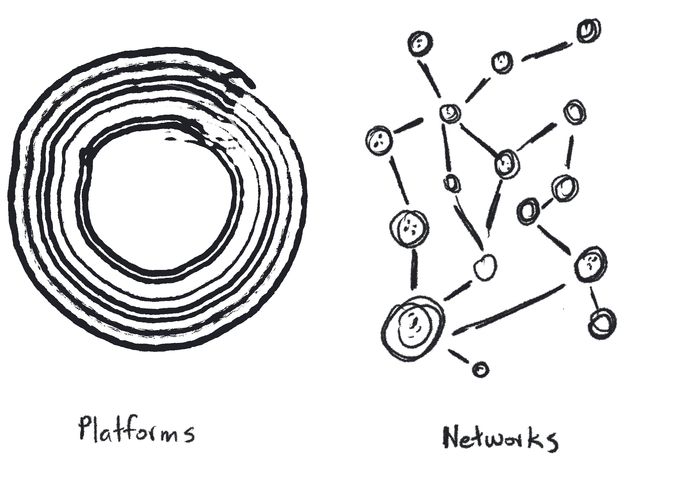In a conversation about Activity Pub and the Fediverse, Eugen Rochko (Mastodon’s creator) and Mike McCue (CEO of Flipboard) proposed a more engaging term for the Fediverse: they're calling it the Social Web. I really think this term hits the mark, and we should embrace it.
In the last decade, most of us have primarily interacted with a small selection of websites and services. The interaction within these limited spaces is what we typically refer to as Social Media. But the internet and the web are changing. We are going back to what was organically happening in the late 90s and early 2000s. In that era we used to have a more diverse set of smaller sites and communities spread all around the web. The concept of the Social Web perfectly describes this.
Social Media is generally presented as a single homogenized experience. Users have information delivered in basically the same format within a platform, what mainly changes is the content. The Social Web is richer. It encompasses various formats, including blogs, micro-blogging sites, forums, photo-sharing sites, instant messaging, video-sharing apps, and others. Users can engage with each other and share content between these networks and technologies.
To highlight the contrast between Social Media and the Social Web, we need to understand the differences between Platforms and Networks.

Platforms are centralized, typically striving to be the single dominant entity controlling all interactions and services. They focus on consolidating user activity and data within their ecosystem, often extracting value from their users in the process. Whereas Networks are decentralized, driven by their members, and prioritize delivering value to their community. They consist of multiple independent smaller entities, each operated by diverse players, offering a range of choices and opportunities.
Building on these ideas, I'll try to define Social Media and the Social Web.
Social Media refers to online platforms that enable individuals and communities to create, share, discuss, and modify user-generated content. These platforms facilitate digital interaction among users, allowing for the exchange of information inside the same platform.
Social Web refers to online networks and technologies that enable individuals and communities to create, share, discuss, and modify user-generated content. These networks facilitate digital interaction among users and services, allowing for the exchange of information between networks and services.
Although both definitions sound similar, they are not. The foundational difference lies in their scope and integration within the broader digital ecosystem. It’s a redistribution of power, value, and control from a handful of giant entities back to users, communities, and smaller players.
The Social Web represents a shift from Platforms to Networks. If this really happens, this shift will be a net positive for all internet users. We’ll have a wider array of choices and alternatives in terms of products, services, content types, and ways of interaction. As networks compete to offer the best experience and value, there will likely be an increased focus on addressing and fulfilling the specific needs of their communities. Innovation will flourish once more, leading us back to a web that is not only more diverse and robust but also more user-centric and distributed.
We are already witnessing the early signs of this transformation. Threads is rolling out support for Activity Pub, enabling cross-network interaction between users of Mastodon and Threads. Similarly, platforms like Peertube are gaining traction. The rise of self-publishing tools like Ghost, along with the resurgence of personal websites and blogs, indicates a growing preference for independent, decentralized web experiences.
I'm really excited about what's coming and can't wait to see the rise of the Social Web unfold.